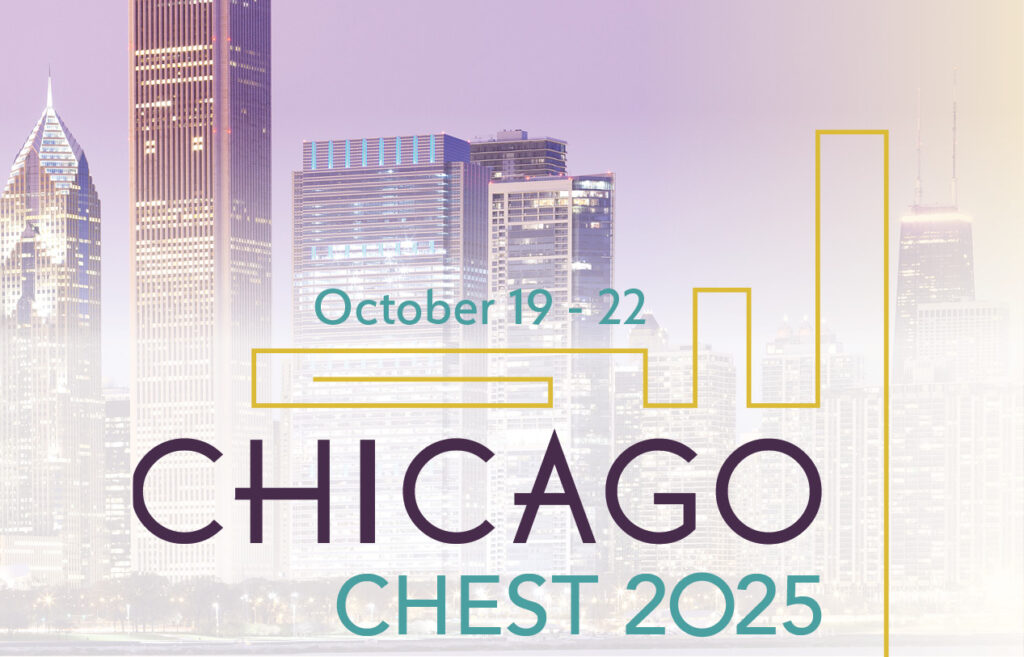As the CHEST 2025 Scientific Program Committee Chair, Sandhya Khurana, MD, FCCP, knows she’s a little biased. Still, even she’s blown away by the breadth and scope of sessions that have been accepted for programming at CHEST 2025.
“CHEST has always led the way in innovative education, and, this year, we’re going to continue to push that envelope,” said Dr. Khurana, who mentioned she’s especially looking forward to sessions on asthma, pulmonary hypertension, lung cancer, and live learning—the latter of which will feature cadavers for the first time since 2019.
“There’s going to be a lot of cool stuff, both educational and noneducational. It will be an experience that will keep you going until the next CHEST meeting,” she said. “Don’t miss out.”
Let’s take a brief look at the hot topics each educational niche has to offer.
Live Learning
No doubt, cadavers are the big draw for this year’s live learning sessions. “It’s one of the best ways for people to learn procedures,” said Otis Rickman, DO, FCCP, Chair of the Live Learning Subcommittee.
While the logistics are challenging to pull off, courses with cadavers are always some of the highest-rated sessions, Dr. Rickman said. “There are very few organizations that can pull that off in a convention center,” he said. “CHEST is one of them.”
Sleep Medicine
While most people know glucagon-like peptide-1 (GLP-1) agonists as diabetes and weight loss medications, they are also emerging as a new treatment for people with OSA, noted Chitra Lal, MD, FCCP, Chair of the Sleep Medicine Curriculum Group and the Sleep Medicine Network. Attendees can look forward to sessions that dig into the emerging science and practical uses of these medications.
“At this point, because everybody’s asking about these drugs, our patients come in asking us to prescribe them,” she said. “Our expert panelists will cover which patients might be suitable for GLP-1 agonists and when these should be considered.”
Chest Infections/Disaster Medicine/Systemic Disease
The big issue this year is climate change, said Salim Surani, MD, MSc, FCCP, Chair of the Chest Infections/Disaster Medicine/Systemic Disease Curriculum Group and the Chest Infections and Disaster Response Network. “We just saw the wildfires in California. Before that, we had a fire in Hawaiʻi. It’s a problem that’s not going away.” Yet not everyone agrees on what’s causing it and what to do about it. “It’s a very controversial topic,” he said.
Lung Cancer/Interventional Pulmonary/Radiology
Minimally invasive treatments for early-stage lung cancer—especially bronchoscopic approaches—will take center stage in this year’s thoracic oncology and chest procedures sessions, said George Cheng, MD, FCCP, Chair of the Lung Cancer/Interventional Pulmonary/Radiology Curriculum Group and the Thoracic Oncology and Chest Procedures Network.
“This is a rapidly evolving field, full of innovation and thoughtful debate,” he said. “The key question is: how do we continue to push boundaries and remain at the forefront of these transformative advances?”
Airways Disease
Evolving COPD guidelines and treatments—such as biologics—will be a major area of discussion in this year’s Airways Disease Curriculum Group, led by Shahid Sheikh, MD, FCCP, who is also Chair of the Airways Disorders Network. Several important studies have come out on the topic, which is affecting the management of COPD in different age groups, he said.
Interstitial Lung Disease/Transplant
Said Chaaban, MD, FCCP, Chair of the Interstitial Lung Disease/Transplant Curriculum Group and the Diffuse Lung Disease and Lung Transplant Network, is excited that, this year, there will be a focus on occupational and environmental lung disease—including not just how to talk to patients about air quality but also how to talk about policy improvements that focus on air pollution. His group also expanded offerings on sarcoidosis compared with previous years and will offer several sessions on lung transplantation, including the use of extracorporeal membrane oxygenation as a bridge from the ICU to transplantation.
Critical Care
Because artificial intelligence is becoming more common in critical care medicine, it’s an important topic of discussion at CHEST 2025, said Daniel Ouellette, MD, FCCP, Chair of the Critical Care Curriculum Group and the Critical Care Network. But it’s far from the only pertinent topic. Other critical care sessions will cover sepsis, telemedicine disparities in the ICU, and ARDS.
“I’m particularly excited about a session that we’re doing that looks at underlying physiology and new frontiers in the management of ARDS,” he said. “And we’re looking at personalized care in ARDS, at biomarkers, at the use of new medications, and at comorbidities that develop in ARDS—how they are linked because of the underlying pathophysiology.”
Cardiovascular and Pulmonary Vascular Disease
Oksana Shlobin, MD, FCCP, Chair of the Cardiovascular and Pulmonary Vascular Disease Curriculum Group and the Pulmonary Vascular and Cardiovascular Network, is looking forward to several sessions that address sotatercept, the first drug to target a novel nonvasodilator pathway in the treatment of pulmonary arterial hypertension, and discuss where it fits in the treatment algorithm of patients with this incurable and progressive disease.
The annual meeting, slated for October 19 to 22, in Chicago, is now open for registration. Reserve your spot before July 15 to save $200 with early bird pricing.
